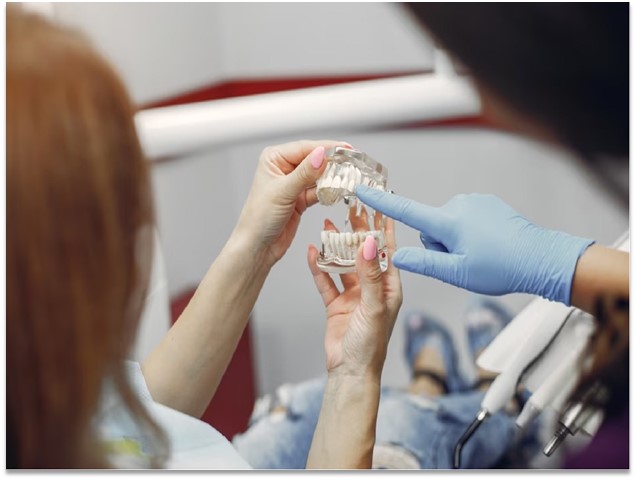Dental implants are one of the most popular options for replacing missing teeth. They provide a natural-looking and long-lasting solution that can improve your appearance, oral health, and quality of life. If you’re considering dental implants in Houston, TX, it’s essential to understand the success rate of the procedure and what factors can affect it.
What Are Dental Implants?
Dental implants are artificial tooth roots that are surgically placed in your jawbone to support a replacement tooth or bridge. They are made of biocompatible materials such as titanium or zirconia that fuse with your jawbone over time, providing a stable base for your new teeth.
Dental implants are a preferred option for people with missing teeth because they look, feel, and function like natural teeth. They are also durable, long-lasting, and require minimal maintenance compared to other tooth replacement options. Dental implants come with a lot of benefits each of which can change our lives for the better.
Success Rate of Dental Implants

The success rate of dental implants in Houston, TX, is generally very high. According to research, the success rate of dental implants is around 95% to 98%, making them one of the most successful procedures in dentistry.
Several factors can affect the success rate of dental implants, including:
Patient’s Health: Patients who have certain medical conditions such as uncontrolled diabetes, cancer, or autoimmune diseases may have a lower success rate of dental implants. Additionally, patients who smoke or have poor oral hygiene may also experience complications with their dental implants.
Implant Placement: The placement of the dental implant is critical to the success of the procedure. An experienced implant dentist will carefully evaluate your jawbone and oral health to determine the optimal location for the implant.
Implant Design: The design of the dental implant can also affect its success rate. Some implants are designed with a rough surface to enhance the fusion between the implant and the jawbone, while others have a smooth surface. Your dentist will recommend the best implant design based on your specific needs.
Implant Material: The material used for the dental implant can also affect its success rate. Titanium is the most commonly used material because it is biocompatible and has a high success rate. However, some patients may have an allergy to titanium, so alternative materials such as zirconia may be used.
Implant Maintenance: Proper oral hygiene and regular dental checkups are essential for maintaining the health and success of your dental implants. Your dentist will provide you with instructions on how to care for your implants and schedule regular follow-up appointments to monitor their condition.
Overall, the success rate of dental implants is very high, but it’s essential to choose an experienced implant dentist and follow their instructions for optimal results. To know more about dental implants, it is high time that you give our website a visit and you will get to know all about the treatment options.

